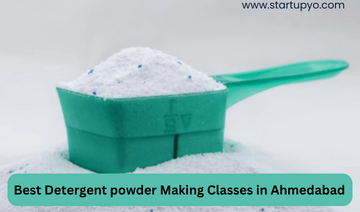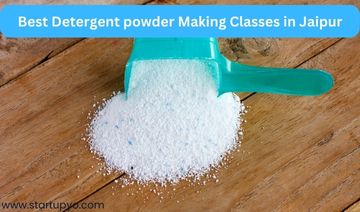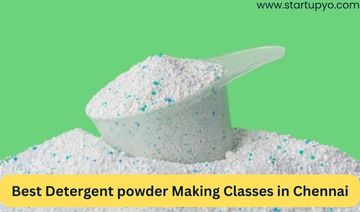- Packed Bottled Water Business Overview
- Market of Bottled Water Business Today in India
- Steps involved in packaged drinking water production
- Steps to Start a Bottled Water Business
- FSSAI License for Packaged Drinking Water
- FSSAI License Permissions for Packed Drinking Water
- Promotions and Market of Bottled Water Business Today in India
- Challenges of Bottled Water Business
Packed Bottled Water Business Overview
Water is available throughout the globe but how much of the available water is fit for drinking? We all rely on a water supplier (either the government water board or an external supplier) for consuming purified water. Unpurified water is highly dangerous as it may contain chemical impurities, bacteria, and dust. Naturally, available water must undergo a treatment process to ensure it has the right PH balance and only required minerals. With the consumption of water increases due to the growing population, it is quite imperative that the world would require a greater number of water purification units. This is where the bottled water business players are benefitting from.
Bottled water business comprises purifying the water, bottling them for consumption and selling them. Bottled water is extremely convenient to carry especially for employees, travelers, and students. It keeps them hydrated irrespective of their proximity to the water supply.
Bottled water can be made of spring water, mountain water or normal water. Spring and mountain water are referred to as mineral water. Flavored drinking water is a new trend in the bottled water industry.
Do you want to start top Business Ideas with Less Investment and contact us at StartupYo as we provide entire Guidance to start your own water Bottle Business with less Investment?
Read More: How To Start PET Bottle Manufacturing Business ?
Market of Bottled Water Business Today in India
Economic conditions do not affect consumption of water as it is something, we all can’t survive without. According to a survey, the global bottled water market was valued at USD 17.0 billion in 2014 and is estimated to reach USD 280.0 billion by 2020. The bottled water industry is growing at 8.5% CAGR from 2015 to 2020. Packaged water business contributes to 18% of the total beverage sales in the world.
Steps involved in packaged drinking water production
Drinkable water must be tasteless, odorless and colorless. However, some minerals and salts can be added to enhance its taste. Steps involved in packaged drinking water production depend on the quality of source water. Quality of source water determines the treatment required. Treated water must be bottled in sterilized bottles with a label containing the details of expiry, composition, quantity, price, etc. A fully-automatic plant or a semi-automatic plant can be installed depending on the production capacity.
Steps to Start a Bottled Water Business
Conduct a feasibility study and analyze market trends
A feasibility study is required for an entrepreneur to understand the requirements, determine the pricing strategy and define a marketing strategy that can make the product survive the market. A thorough market analysis can give valuable insights to untapped market places and opportunities or even enhancements to bottled water.
Register the Business
Register a business name. It helps in identification in the market, gaining trust from customers and avoiding competitors misusing your market value.
Write a business plan
Business plan for bottled water business can make business execution easy and also win funds for you. Business plan for bottled water must have sections like an executive summary, vision, missions, potential market, market analysis, promotion, and marketing, staffing, capital and return estimations.
Obtain necessary permits and licenses
After registering the business, permits, and licenses on establishing a water plant, procuring water, selling them and certifying the safety of water is required. Absence of any the permits or licenses might invoke serious actions from the government and may even result in shut down of the company.
Find a suitable location
Choose a location strategically by considering factors like a water source, transportation distance to the market, availability, and affordability of a space large enough to set up huge water tanks and most importantly continuous power supply. Ensure that the location selected has enough space for transporting water tankers.
Find a good water source
A good water source is essential to the success of the business. The source of water could be boring well water, surface water, seawater, municipal supply or other sources in which treatment is possible.
Identify Bottle Suppliers
The cost of bottles purchased for filling water is one of the major costs incurred in bottled water business. So, to gain good profit margins, focus on minimizing the expenditure on bottles. Find a supplier who provides bottles for an acceptable price with satisfactory quality.
Procure Machinery
The machinery for bottled water business depends on the scale on which you would like to produce. The common machinery required is a generator, tanks, bottle filling, labeling and sealing machines, testing tools, treatment machines, filters and water purifying chemicals. To ensure safety and hygiene, the bottles must first be washed and sterilized. This is can be done manually using warm water for small scale water plant units but must be automated for medium and large-scale units.
Hire Your Staff and Start Operations
Bottling water business involves many activities and might have complex processes depending on the method used for purification of water. Minimum staffing for bottled water business includes a trained professional for water testing, machine operators, sales manager, production helpers, supervisors, drivers, and cleaners. Hiring experienced water testing personal, machine operators and the salesperson is key to run the business.
FSSAI License for Packaged Drinking Water
Food Safety and Standards Authority of India (FSSAI) is the food regulatory body in India that ensures the safety and quality of food, water, and other beverages. According to FSSAI, no Food Business The operator should produce bottled drinking water without FSSAI License or Registration. Businesses cannot obtain a license without having a BIS certificate. Therefore, it is mandatory to procure a BIS certification to avoid cancellation of FSSAI registration or license. There are three types of FSSAI licenses.
FSSAI Basic License – for retailers with an estimated annual turnover of less than Rs. 12 Lakhs.
FSSAI State license – for estimated Annual turnover of more than Rs. 12 lakhs and less than 20 Crores.
FSSAI Central License – for manufacturers running units in more than one state or for estimated annual turnover more than Rs. 20 Crores.
As per FSSAI, water for bottling can be obtained from surface water, underground water, seawater, civic water supply or other consistent supply of water. To obtain an FSSAI license, the rules set by FSSAI must be adhered to.
- Water must undergo purification by decantation, demineralization, filtration (a combination of filtrations), aerations, activated carbon filtration, remineralization, reverse osmosis etc.
- Water must be disinfected. Microorganisms must be the scientifically accepted level.
- Seawater must be desalinized.
- Containers used in the plant must be sealed.
- Chemicals and ingredients used for remineralization must be approved by food grade and pharma-grade quality.
FSSAI License Permissions for Packed Drinking Water
To obtain an FSSAI License for your bottled water business, you will need the following registrations and documents:
- SSI Registration.
- ISI Mark Certificate (BIS Registration): BIS Registration is mandatory for the packaged drinking water in India.
- Pollution control certificate: Pollution control certificate is issued by the Pollution Board office of the state or local government.
- Test reports of raw water and pure water.
- Pest control certificate.
- Degree and medical certificate of Chemist.
- Degree and medical certificate of Microbiologist.
- Registration of trademark.
- Document of ownership or lease of land.
- Electrical department load sanction.
- Memorandum of Association (MOA) of companies or Partnership.
- Sanction of the layout plan.
- NA of land if it is not in the industrial area.
Is a packaged mineral drinking water business profitable?
Both packaged drinking water and mineral water are profitable businesses. Despite heavy competition, small and medium water business players still make significant profits due to undying demand the variation in the cost of water bottles and the wide range of customers. Take additional care to create unique and personalized labels for parties and events. Focus on retaining all your existing customers.
Read More: How To Start Disposable Plastic Glasses Making Business ?
Profits on Bottled Water Business
The profit margins vary anywhere between 25% to 200%.
Normal water and Mineral water advantages and disadvantages
Normal water: Normal is packaged drinking water or bottled water. The water from borewell, surface water or civic water is used and Total Dissolved Solids (TDS) is reduced through the RO process. It does not contain any minerals. It is relatively cheap to set up a normal water plant.
Mineral water: Spring water or mountain water is referred to as mineral water. Water from springs or mountains is processed and minerals like sodium, potassium, calcium, etc. are used. It is healthy compared to normal water. Setting up a mineral water plant requires intensive capital.
Disadvantages of using Normal Water:-
- Might contain toxic minerals like lead and chlorine.
- Might contain pesticides.
- Might contain bacteria and other harmful organisms.
Advantages of using Packaged Drinking water Business:-
- Easy to carry.
- Free from contamination due to pesticides, toxic minerals, and microorganisms.
- Free from unpleasant taste and odor.
Read More: How To Start Plastic Recycling Business ?
Promotions and Market of Bottled Water Business Today in India
Thoughtful promotions and marketing are necessary to compete with the competitors in the bottled water business. Understand the offerings by the small, medium and large-scale bottled water business players and craft a marketing strategy. Get creative and innovative with the promotions, packaging and bottle shapes.
- Build corporate contacts.
- Focus on setting up deals with retailers, hotels, restaurants, gyms and sports clubs, etc.
- Use social media to establish your brand through Facebook, Twitter, Instagram, etc.
- Participate in roadshows and exhibitions.
- Encourage direct marketing and sales.
- Target event planners for customized water bottles.
- Sponsor a few events or programs.
- Distribute fliers in your target location.
- To retain existing customers, make sure the taste and quality of the water you the bottle is consistent.
Challenges of Bottled Water Business
Every business has its own challenges. Let’s look at the potential challenges in starting a bottled water business.
- Bottled water business requires significant capital to set up a plant, hire a work location, transport water, purchase large machinery and run maintenance repairs.
- Technical knowledge of machine handling, water testing is mandatory for the staff. Hiring them expensive and so is training them.
- Bottled the water business is heavily reliant on uninterrupted power. Therefore, arrangements for generator sets must be made to ensure operations during power outages.
- Bottled the water business is susceptible to frequent inspections to check on water quality and hygiene conditions.
- Changing weather conditions impact availability of water and its quality so take extra care during summers and monsoons.
Water is essential for our survival and every person on earth would want to drink clean and safe water. The bottled water market is overcrowded with many small, medium and large-scale industry players but there is and there will always be scope for new entrants offering bottled water that is safe, tasty, and affordable. Focus on establishing your market reach and catering to customized orders. Restaurants, hotels, event managers are all now looking for unique and customized bottled water with personalized labels (names, logos, etc.) and added health benefits.



